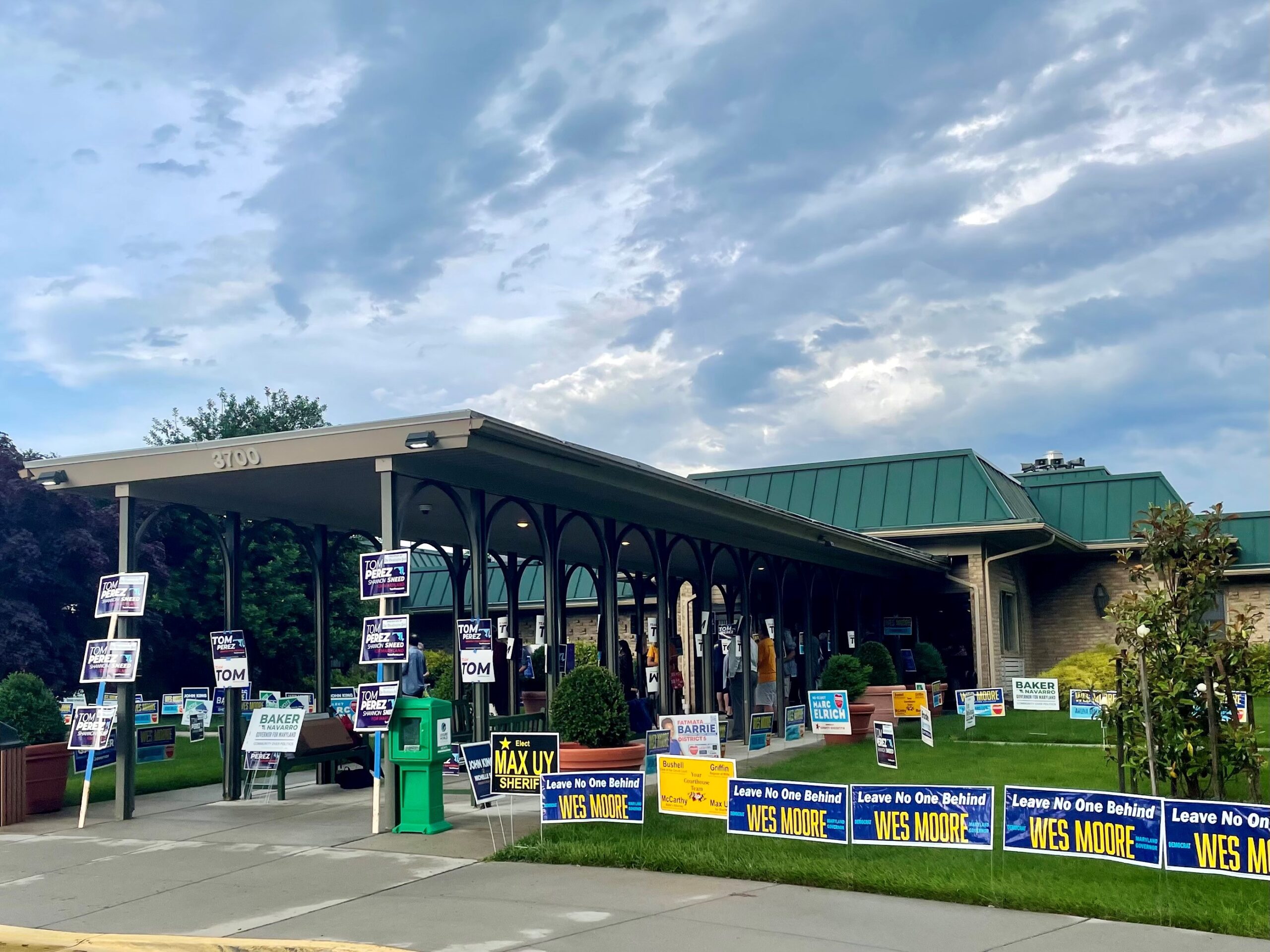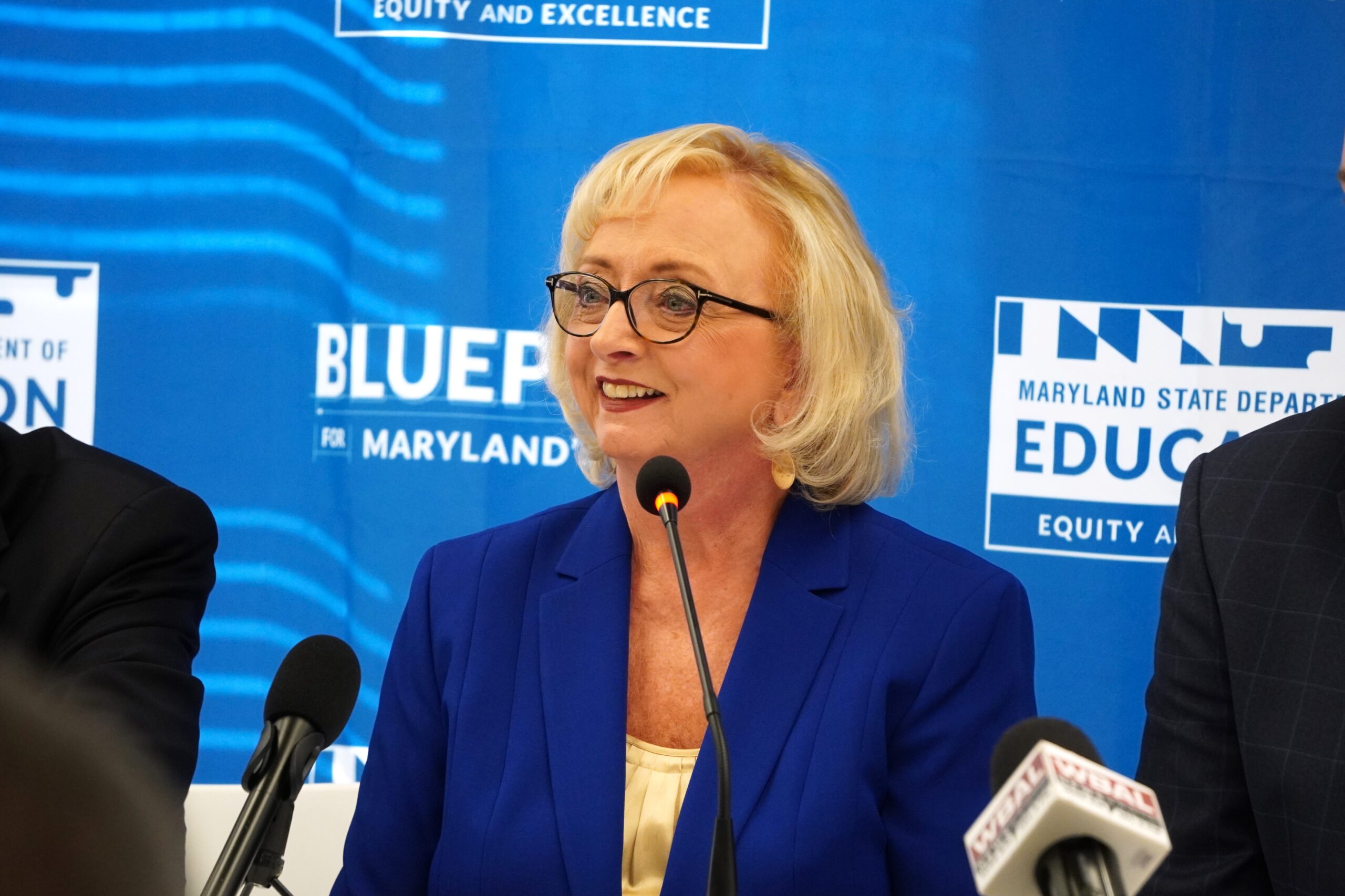Democratic Candidates for Governor Tout Electability at Mecca of Voter Turnout

Leisure World, the massive senior citizen community in Montgomery County, is a political powerhouse. It takes in three election precincts of its own and voter turnout is always high.
So it’s hardly a surprise that Thursday night’s forum for the Democratic candidates for governor sponsored by the Leisure World Democratic Club could prove to be one of the most consequential of the long campaign season. And it isn’t a surprise that in the presence of monsoon conditions across the state and emergency warnings about likely flooding, dozens of Democrats still jammed into a ballroom on the Leisure World campus and another 200 watched on Zoom.
“I love Leisure World because you understand that democracy is not a spectator sport,” said one of the candidates, former U.S. Labor Secretary Tom Perez.
Six candidates took part in the two-hour forum — five in person, and author and former nonprofit CEO Wes Moore, who was quarantining after testing positive for COVID-19 earlier this week, remotely. The forum organizers kept the panel to six candidates, leading to a somewhat crisper affair than countless other candidate cattle calls this year.
Like Perez, all the other candidates attempted to praise the Leisure World activists or draw connections with the senior population, talking about previous visits there, or cherished older relatives, or the political heft of the community.
“The intellectual prowess that’s in this room should never be understated,” said former Attorney General Doug Gansler.
Moore recalled speaking previously to Leisure World residents about high prescription drug prices — and about traffic conditions on nearby Norbeck Road.
Under questioning from Maryland Matters Editor Danielle E. Gaines, the candidates largely agreed on core Democratic issues like abortion rights, education funding, the importance of tackling state priorities with an equity lens, and the urgency of confronting climate change. Where they differed was on their level of experience and how and when they may have addressed certain policy challenges during their careers.
The candidates were asked one specific question geared to the audience’s generation: Whether they would sign or advocate for medical aid-in-dying legislation in the General Assembly. Such a bill passed narrowly in the House of Delegates in 2019 but stalled in the state Senate.
All six Democrats said they were generally supportive, but former Prince George’s County Executive Rushern Baker drew from recent, searing experience: His wife died last fall after a more than decade-long battle with Alzheimer’s.
“It’s not an academic question,” he said, recalling when his wife went on a respirator and he and his three children had frequent discussions about the proper course of action. “It’s what I’ve had to deal with.”
Some candidates used the question to pivot to other topics.
Former U.S. Education Secretary John King said the U.S. is suffering from a “crisis of care,” and observed that adults who need to care for ill or elderly relatives are often hamstrung by the lack of quality, affordable child care.
Gansler moved the conversation toward his support of abortion rights, while Perez recounted filing lawsuits to win better pay for home health care workers while he was at the U.S. Justice Department.
“I think the devil’s in the details,” said Comptroller Peter Franchot, recalling a recent conversation with his wife about what his wishes would be if he were gravely ill.
“Definitely cut me off — I don’t want to be a burden,” he said. “But look, if it looks like I may have a chance [of surviving], maybe a little bit flexible?”
Franchot went on to say that he would work as governor to ensure that Marylanders lead “long, productive, pain-free lives,” and, at age 74, the oldest candidate participating in the forum, offered health tips for older adults (“walk more, eat less”).
Candidates were, at times, generous with one another — Perez referenced “the dignity” Baker and his wife displayed during her agonizing illness. And they occasionally got snippy with each other.
During a discussion on abortion rights and the importance of judicial appointments, King recalled that Gansler had supported Justice Brett Kavanaugh’s nomination to the U.S. Supreme Court. Gansler accused King of peddling “fiction.”
And during a discussion on environmental priorities, Gansler pointed out that Franchot had initially opposed offshore wind energy development and was once supportive of the Western Maryland coal industry.
Answering a question from Mark Woodard, a veteran Montgomery County Democratic activist and new Leisure World resident, the six candidates explained how they would win.
Gansler stressed his electability and his experience in state government.
“This is going to be the most Republican election of our lives, so we need candidates who can win,” he said. “And governor is not a starter job.”
Perez stressed the “racially, geographically, generationally and ideologically diverse coalition of supporters” he’s attracted, including from organized labor, and name-checked former Montgomery County Executive Isiah Leggett (D) and three of the state lawmakers who represent Leisure World — state Sen. Ben Kramer (D) and Dels. Bonnie Cullison (D) and Vaughn Stewart (D) — among his supporters.
Moore suggested that his depth and breadth of support, along with bold ideas, and aggressive fundraising, would help him prevail.
“We’re not just running a campaign that’s poised win the primary, we’re poised to win the general election,” he said. “This is our moment to get things right. To build a strong coalition.”
Baker highlighted his executive experience in local government and also cautioned that he had received many endorsements during his 2018 campaign for governor, only to finish second in the Democratic primary. And he touted his decision to essentially forgo fundraising by participating in the state’s public financing system.
“That’s why we went into public financing,” he said. “We wanted to talk to you instead of running around the country raising money.”
King said he started his campaign by seeking advice from Stacey Abrams, who is making her second run for governor of Georgia this year and almost prevailed four years ago by visiting communities where Democrats don’t always go. He noted that she was referred to as “that crazy Black lady from Atlanta” but won respect and support as she moved around the state — a model King said he is now following.
Franchot spotlighted his four previous statewide campaigns, including his historic victory in the 2018 general election, when he tallied more votes than any candidate for statewide office in Maryland history, and said voters respond to his independence.
“My whole brand is to be an honest, transparent, thoughtful, fiscally responsible, socially progressive straight shooter,” he said. Franchot also predicted victory: “We’re ahead right now. We’re gonna stay ahead.”
This was the third campaign forum for the Democratic gubernatorial candidates this week. They’ll meet again on Monday on a forum broadcast by Maryland Public Television, WBAL-TV and WBAL Radio.
The primary is on July 19 and early voting starts July 7. Mail-in ballots are expected to go out in about two weeks.




 Creative Commons Attribution
Creative Commons Attribution